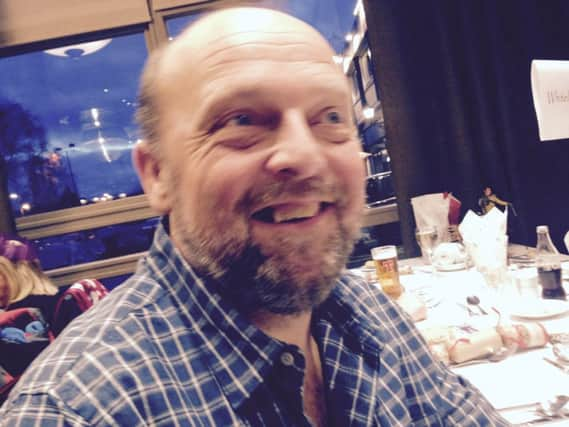Half of Scots fail to disclose organ donation wish


Many people believe joining the NHS Organ Donor Register ensures their wishes will be carried out, but failing to share this information with loved ones means the pledge might not be honoured.
CONNECT WITH THE SCOTSMAN
• Subscribe to our daily newsletter (requires registration) and get the latest news, sport and business headlines delivered to your inbox every morning
Advertisement
Hide AdAdvertisement
Hide AdThere are currently 540 people in Scotland waiting for a life-saving transplant.
Around 41 per cent of Scots are on the NHS Organ Donor Register but researchers say increasing the family authorisation rate for organ donation is vital for saving more lives – and research shows almost half of Scots (45 per cent) have not discussed their wishes with their family.
The Organ Donation Scotland campaign is encouraging people who have made the decision to be an organ donor to tell family and friends.
Since 2010-11, the family authorisation rate for organ donations has increased from 57.1 per cent to 61.6 per cent.
Researchers said that if the rate was to increase to 80 per cent, around 90 more lives could be saved each year.
Health secretary Shona Robison is now urging people across Scotland to talk to their close relatives and friends in 2015 about organ donation.
Of nearly 1,000 people polled, one in ten (12 per cent) of those who said they were on the Register admitted they had not talked about their wishes.
Ms Robison said: “I have been on the Register for a number of years now, but I also know that I need to discuss these wishes with my family to ensure they honour my wishes in the event of my death.
Advertisement
Hide AdAdvertisement
Hide Ad“Having that conversation with loved ones is so vital, and I’d encourage everyone to make having a ‘wee chat’ their New Year’s resolution for 2015.
“Understandably, organ donation isn’t something that comes up in everyday conversation, but the reality is that your family are twice as likely to agree to donation if they know it’s what you would have wanted.
“We also know that in the last five years, almost two thirds of those who donated their organs weren’t on the NHS Organ Donor Register. We want to reach those people who haven’t thought about organ donation or haven’t decided either way. If you’ve made the positive decision to be an organ donor, please make the time to share that decision with those close to you.”
The organ transplant rate in Scotland has increased by 62 per cent since 2007-2008.
But last year a number of leading medics said more lives could be saved by an “opt-out” scheme.
Dr Brian Keighley, chairman of the British Medical Association (BMA) in Scotland, said that while there had been progress in the number of people signing up to the Organ Donor Register and lives had been saved, others had died without reaching the waiting list.
He said: “The BMA believes that a change to an opt-out system for organ donation would help to increase the number of organs available. This would make donation the default position from which people may opt out during their lifetime if they choose to do so.
“Given the exceptionally high level of support for donation, this is simply making it easier for people to achieve their wish to donate.”
Case study
Advertisement
Hide AdAdvertisement
Hide AdGeorge Cumming, 55, a father-of-four from Glasgow, is one of the 540 Scots on the organ donation waiting list. He has been waiting for a kidney and pancreas transplant since March.
Mr Cumming, from Newton Mearns, who was diagnosed with diabetes in his twenties, was referred to a renal clinic six years ago after blood tests revealed a decline in his kidney function.
After managing his condition with medication, Mr Cumming – who works as a psychiatric nurse – is now in the end stages of renal failure.
He said: “I knew things were catching up with me and then the news came that my kidney function was poor and we got started on the treatment.
“When I was told I was being listed for transplant, it gave me hope. Getting that gift would give me a chance of normality. It sounds funny to say, but I haven’t had normality for over 30 years. The very idea of not being diabetic is wonderful.
“If I don’t get the transplant, it will be life on dialysis, but I try not to think like that. The possibility of a transplant gives me something to focus on as it would mean a whole new start.
“Every time you get a phone call from a number you don’t recognise, part of you thinks it may be it. But for now, I’m taking each day as it comes.”
SCOTSMAN TABLET AND IPHONE APPS